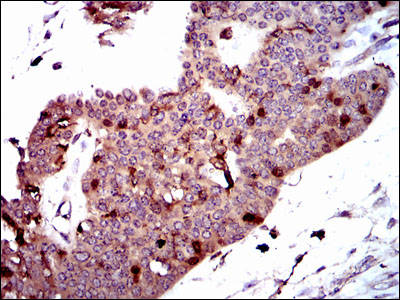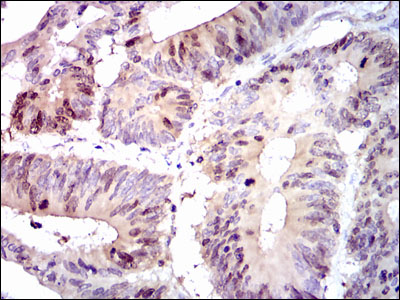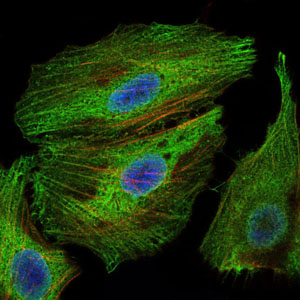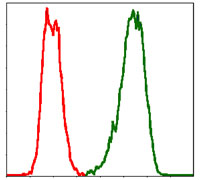Protein kinases comprise a large group of encoded factors that regulate cellular processes by catalyzing the transfer of a phosphate group to a hydroxyl acceptor in serine, threonine or tyrosine residues. Kinases are capable of influencing the oncogenic potential of cell sytems at the level of oncoprotein or tumor suppressor protein phosphorylation states. Human PDZ-binding kinase, known as PBK, is a 322 amino acid, T/SXV motif-containing serine/threonine kinase that is abuntant in placenta and absent from adult brain tissue. A PDZ domain in the tumor suppressor protein Dlg can coordinate with the T/SXV motif of PBK. The cell cycle checkpoint kinase Cdc2/cyclin B is an upstream effector of PBK that can phosphorylate and activate PBK. Active PBK may associate with PDZ-containing proteins and influence cell cycle control or cellular proliferation.






